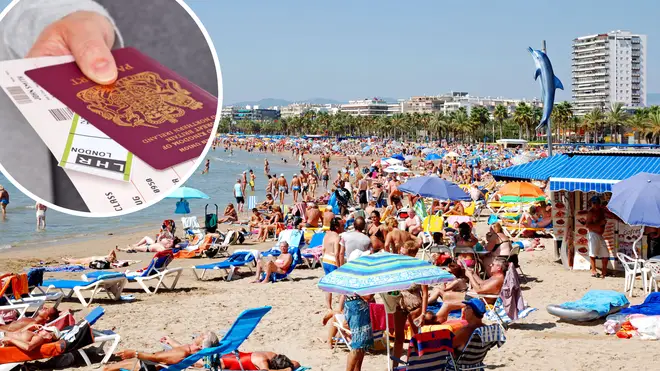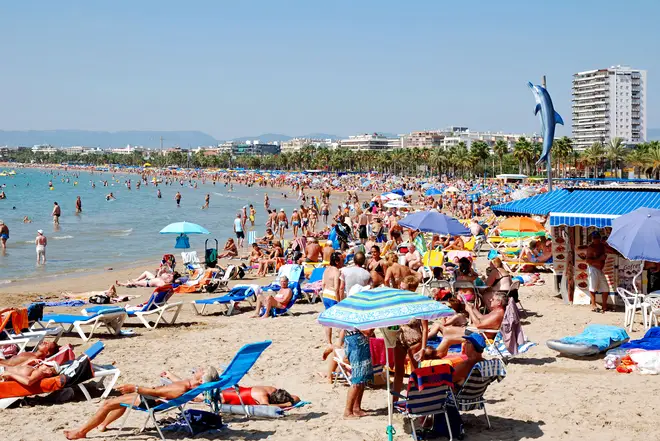
Nick Abbot 10pm - 1am
8 March 2024, 13:05 | Updated: 8 March 2024, 14:05

New travel rules are being implemented for 25 EU countries, including popular holiday destinations such as Spain, France, Portugal, Greece and Italy - but there are a few exceptions for UK travellers.
Eager UK globetrotters travelling to those popular destinations are now being warned about new travel rules and restrictions.
The first change is the EU entry/exit system (EES), which is an automated system for registering travellers from the UK and other non-EU countries each time they cross an EU external border - but some are exempt.
Read more: Brits warned about two major changes to expect before travelling to Spain for holidays
This will replace the current system of manually stamping passports.
New scanners will register the person's name, type of travel document, biometric data, as well as the date and place of entry and exit.
The system will apply to entry to 25 EU countries, including Spain, Greece, France, Germany, Italy and four non-EU countries, Norway, Iceland, Switzerland and Lichtenstein, according to the European Commission. It will also affect UK border checkpoints.
The exemptions mean that non-EU nationals who have a residence card or permit and who are directly related to a non-EU national can travel freely around Europe like an EU citizen.

In addition, it won't apply to non-EU nationals travelling to Europe for an intra-corporate transfer, students, training, pupil exchange schemes, research, au-pairing, voluntary service or educational projects.
The new rules also apply to people with long-stay visas and those with residence permits, as well as those who don’t need border checks or have been given special privileges - such as cross-border workers or heads of state.
Other travel rules have already changed for Brits wanting to travel - for instance, the validity of your passport has to meet new requirements.

Due to post-Brexit regulations, UK passports need to be less than 10 years old on the day you are travelling and they must have three months remaining after you return.
Some of these requirements have been in place but some holidaymakers are still getting caught out, resulting in not being allowed to board the plane.
Airport workers have even been caught out by the new rules and have turned disappointed travellers away - so ensure your documents are within the required window of dates.
If you are still unsure about the validity of your documents, get in touch with your airline or tour operator.
In relation to the requirements, UK airports are rolling out new scanners, meaning that the 100ml liquid restrictions will soon be scrapped.
However, some airports have warned that they may not be able to meet the June 2024 deadline set by the UK government.